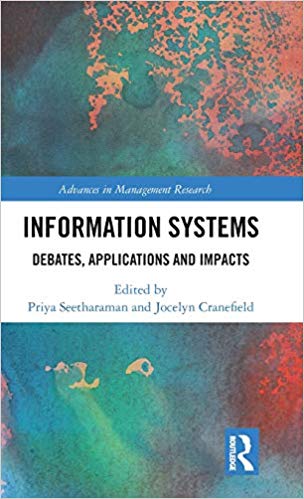Quickly changing business landscapes driven by technological trends already in motion are predicted to transform our lives in the coming years. From greater automation of daily chores, robo-advisories, virtual reality at homes to an avalanche of e-commerce activities and the rise of an AI-based shared economy, the world around us is metamorphosing in unfathomable ways. Concomitantly, a cultural revolution altering the ways in which we conduct social interactions is underway. What does this mean for countries like India that are still trying to equitably disperse the advantages of the precursors (IT, ITeS) to these technologies? What are the challenges that organizations and societies grapple with, in a tech-enabled world, and how can these translate into opportunities? Moving beyond esoteric discussions on software tools, techniques and concepts, the anthology on Information Systems edited by Priya Seetharaman and Jocelyn Cranefield, delve into these questions and many more.
The book makes a lucid attempt at laying bare the nuts and bolts of Information Systems (‘IS’ hereafter) in India, both from an academic and an industry point of view with the former attaining precedence. The first unit charts out the vicissitudes of the IT industry in India with a view to comprehend its impact on IS as an academic discipline and plunges deep into the subject right from inception by highlighting the dual challenge of boundary-setting and ensuring inclusiveness in knowledge creation faced by the discipline. The chapter lays down a convincing argument for a multi-disciplinary approach to understanding the subject at hand. It is also interesting to see how they chose to delve into a seemingly colossal and confoundingly ubiquitous theme such as IS in the Indian context. The introductory chapter, by way of gleaning several issues concerning IS, and painting the scars as it were, buttresses the expectation that this will serve as a first-of-its-kind compendium on IS (albeit with a greater degree of sophistication in the research chapters that comprise it, relative to a typical compendium).

